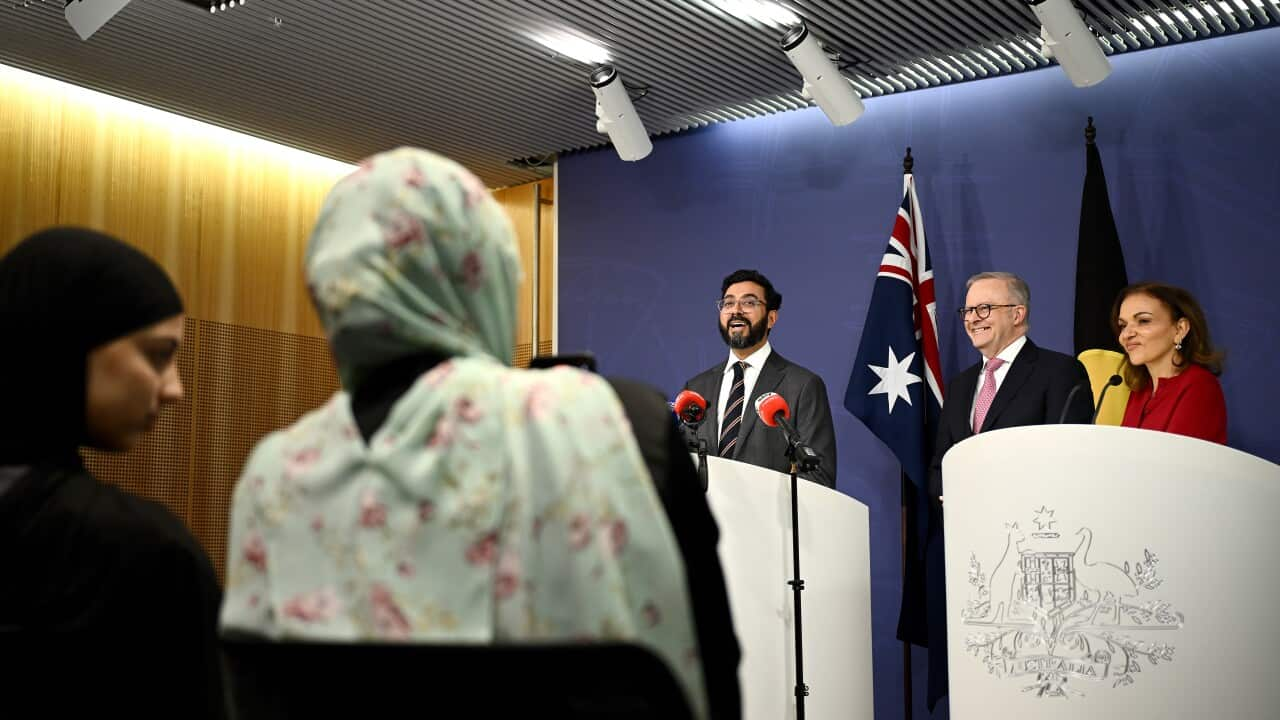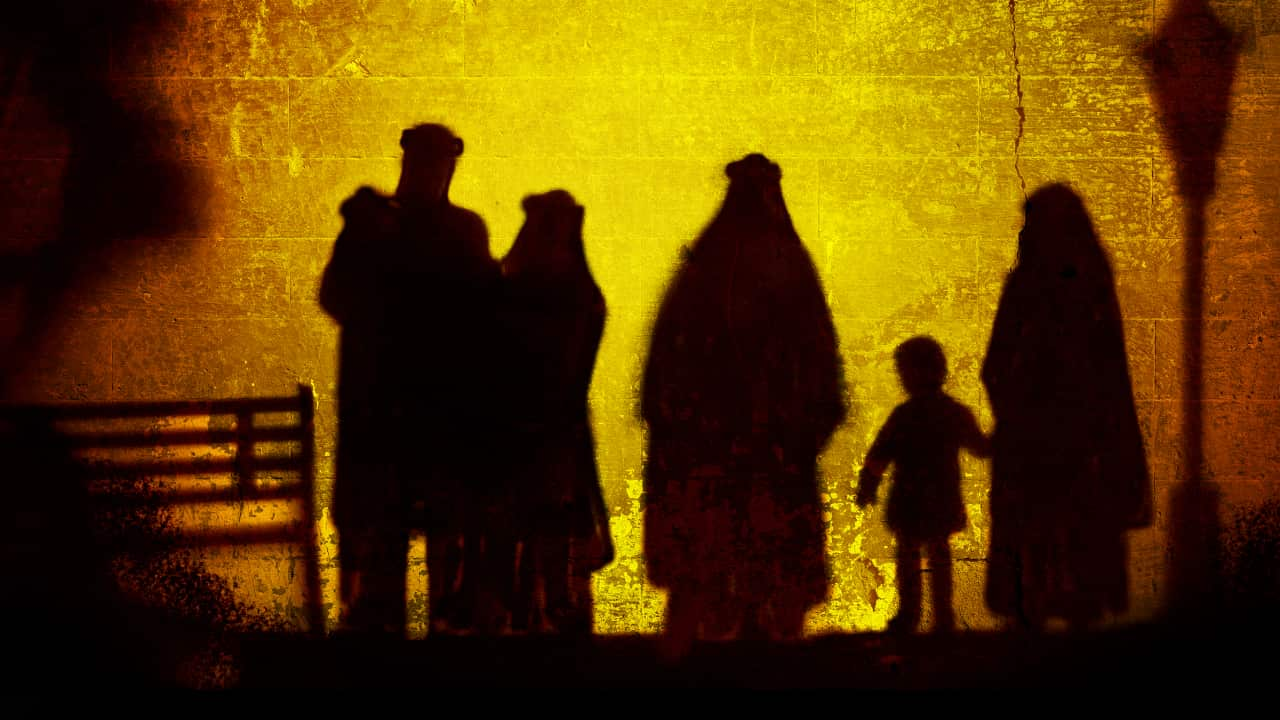Members of the Australian Muslim community have called for more government action to tackle discrimination after the special envoy to combat Islamophobia handed down his "long-awaited" report on Friday.
Special envoy Aftab Malik made 54 recommendations to the Australian government to combat the "real and pervasive" impact of Islamophobia in Australia, adding that it was a "critical and long-awaited moment" for the community.
He said Islamophobia had never been "fully addressed" in Australia and at times, "ignored" and "denied".
The recommendations address every major agency within the Australian government and encompass three key areas: accountability and responsibility, protection and support, and education and awareness.
Among them are recommendations to grant Islamophobia the "same rights, protections, and legal recourse" as other forms of discrimination, a review of counter-terrorism laws, and the establishment of a commission of inquiry into anti-Palestinian and anti-Arab racism.
Prime Minister Anthony Albanese said he would "carefully consider" the recommendations.
The report comes two months after the special envoy for antisemitism, Jillian Segal, released her report to the government, which called for more sweeping measures, such as cutting funding for organisations seen as failing to act.
Malik brushed aside any criticism that his recommendations do not go far enough in the wake of bomb threats against mosques and vandalism of Muslim properties.
"My main influence came from the Muslim community across Australia — and what they wanted was recognition, not retribution," Malik told SBS World News.
'A severely fractured relationship'
Sharara Attai from the Islamophobia Register Australia says there is a "fractured relationship" between the Muslim community in Australia and the federal government.
"There is a severely fractured relationship between the Muslim community and the Australian government," Attai told SBS World News.
"I think there is widespread mistrust [in] the government from the Muslim community and the way that our community's suffering and plight has not been treated with the same level of concern as other communities.
"It will take a lot to mend that relationship."
Attai said the report was just the first step of treating Islamophobia with the "level of urgency" it needed, adding that "a lot more" needed to be done.
Gamal Kheir of the Lebanese Muslim Association was "very supportive" of the envoy's recommendations and called on the Albanese government to take action.
"I believe the government has an obligation now to honour the recommendations and take them seriously," Kheir told SBS Arabic.
"If we truly believe in the process of social cohesion and getting all the communities united, then the envoy's recommendations go a long way towards healing the differences in our community at the moment."
He spotlighted the need for definition changes to counter-terrorism laws, which he says have unfairly targeted the Muslim community.
"The whole concept of the definition of terrorism has been unfairly pegged towards the Muslim community, selectively only," Kheir said.
"We've been very much advocating the government, and supported by the envoy, in the fact that the definition of terrorism needs to be better defined and less focused on a person's religion and more focused on the act itself."
'An escalation of intensity'
The report comes after a man staged an alleged bomb hoax at a Gold Coast mosque and an Islamic school in Brisbane received a bomb threat that forced the evacuation of hundreds of students and staff.
The Islamophobia Register's Queensland-based executive director Nora Amath said Muslims felt targeted and afraid against the backdrop of recent anti-migrant rallies.
"We're seeing an escalation of intensity," she told AAP.
"For the very first time, we're seeing back-to-back physical assaults and back-to-back bomb threats, which is all very concerning."
Australian National Imams Council senior advisor Bilal Rauf said the report strengthened the case for religious protections, which the peak religious body has lobbied for.
He said the onus was on Albanese and his government to take the recommendations seriously, "so it's not just lip service".
The Australian Palestinian Advocacy Network says anti-Palestinian racism and the report's findings are deeply connected, but this has not been recognised.
"The Australian government has failed by restricting its focus to Islamophobia through the Islamophobia envoy, while deliberately ignoring and refusing to quantify the widespread anti-Palestinian racism and discrimination that has surged since October 7," APAN executive member Lama Alqasem said.
"That refusal itself is a form of racism because it denies Palestinians recognition, safety and justice."
Since 7 October 2023, reported incidents of Islamophobia have increased by 537 per cent, according to the Islamophobia Register Australia.
The Australian Muslim Advocacy Network was more critical, saying it did not share the government's rationale for establishing the Islamophobia and antisemitism envoy roles but welcomed the recommendations.
The network supported new measures to treat hate crimes more seriously without expanding crimes and police powers or restricting free speech.
"The recommendation to establish independent scrutiny panels to improve the way hate crimes are policed is a positive step," the network said.
"All communities deserve equal protection from hate and applying different standards creates unfairness in a multicultural society."
'We have been consistent', says Albanese
Prime Minister Anthony Albanese dismissed claims that anti-Muslim hate had not been given the same attention as hate directed at other communities.
"We have strengthened Commonwealth hate crimes to criminalise threats of violence, force or property damage that targets individuals or groups based upon race, religion or nationality," Albanese said in a joint press conference with Malik on Friday.
"That applies across the board. We have been consistent."
He added that he would "carefully consider" the recommendations and continue to "work closely" with Malik.
"Australians should be able to feel safe and at home in any community. The targeting of Australians based on their religious beliefs is not only an attack on them, but it's an attack on our core values," Albanese said.
"We must stamp out the hate, fear and prejudice that drives Islamophobia and division in our society."
— With additional reporting by Richelle Harrison Plesse, Mahnaz Angury and Australian Associated Press.




